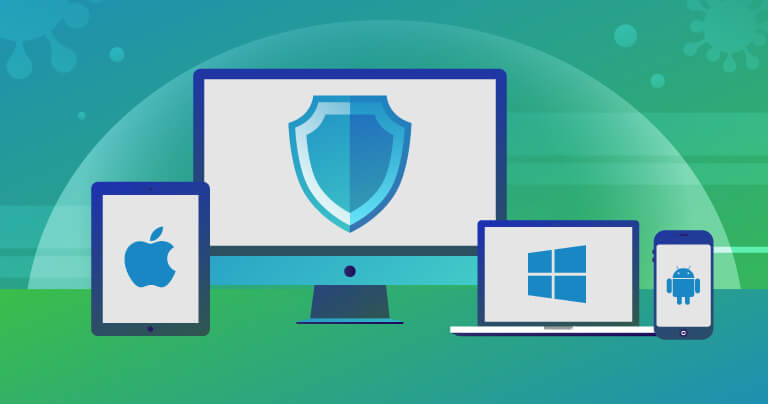What is personal information?
Personal data are all data referring to someone whose identity is directly or indirectly established by their use. It’s usually data that’s used daily in activities at work, in poisoning, within the bank, school, on the net, and therefore the like. Therefore, all information that may establish the identity of someone is taken into account by personal data.
Examples of conscious and unconscious leaving of non-public data – Better Antivirus Protection
There are a variety of everyday situations during which we leave personal information that might potentially be misused and misused by third parties. For instance, leaving personal data on bulletin boards, leaving printed biographies of job candidates on the table, or throwing them within the waste bin, are a number of the common irregularities that nobody usually pays attention to or considers risky. Better Antivirus Protection.

Situations the same as these within the digital world where such data is extremely easily reproduced, shared, and passed on multiply the danger of their easy availability and misuse. Therefore, it’s necessary to own a developed awareness and understand the importance of non-public data and therefore the risks of their potential misuse.
In this era of “big data”, personal data is treated as a very valuable resource that offers supremacy and control to those that possess it. Every institution, organization or company, which is legally obliged to ascertain our identity before delivering the service to us – school, bank, internet provider – collects data about us.
Also, sellers of varied goods, supporting the contract or our permit, have information about, say, our address to which they’ll deliver the merchandise or our telephone number. Using information and communication technologies, each of us, consciously or unconsciously, leaves a couple of non-public data on the web, which within the 21st century represents “digital oil” and of course the currency with which we obtain certain services.
Thus, personal data finishes up mostly within the possession of corporations and advertisers who, through data collection, monitor the behavior of Internet users and personalize searches, advertisements, and media content for every user.
To enable us to use the services, many internet services offer and require us to accept consent to the use of personal information, usually only partially stating how our data will be used. These consents often appear in the form of pop-up or “pop-up” windows on certain sites, and users are usually reluctant to read them in full due to the need for quick access to information or services, so they usually click and accept all terms and conditions without reading the notice.
This notice contains information about the purposes for which our personal information is used and informs that “cookies” will be installed on our device that can track and record visits to various sites. Cookies are text files that are stored on web browsers when we visit a page.
With cookies, a web page can remember our activities and automatically apply them the next time we visit the same web page. Can be used e.g. to remember passwords or forms that we previously filled out.
In general, the purpose of cookies is not malicious, they are not harmful and do not carry viruses, but they can endanger our privacy because through them the interested user can have insight into the websites we visited, to record our interests and habits and thus create a user profile. Internet and sells that information about us to a third party who will serve us advertisements.
Bitdefender as a secure protection solution
The modern and technological world is a complex and multi-purpose system, which is flooded not only with positive characters but also with extremely hostile actors who are thirsty to master your data and financial resources.
Everything that a person is together with today is directly connected to information computer systems, which in turn can be susceptible to virus attacks and other influences through software, which is not surprising, with their diversity and progress they have weaknesses.
Thus, to ensure the security of storage and use of any user data, antivirus programs are created, the task of which is to reflect hacker attacks and minimize data loss due to destructive viral activity. One of these antiviruses is Bitdefender. Better Antivirus Protection.
The main advantage of Bitdefender is the detected suspicious activity in the system and their effective blocking even in the phase of influencing user data. Bitdefender Antivirus is also a good choice for complete protection against all kinds of scams and other troubles.
An antivirus application that protects the system in real-time from viruses, spyware, and online threats. The program is characterized by high work functionality and contains many effective tools for reflecting external threats. Reliable protection of devices from viruses, rootkits, theft, trojans, and other malicious effects.
It does not affect the performance of the device, a very clear interface that is easy to use. To stay safe and secure, use the Bitdefender antivirus program.
Regularly update existing hardware and software solutions
To act preventively and reduce exposure to possible vulnerabilities, it is necessary to regularly update hardware and software solutions, following the recommendations of computer manufacturers, mobile devices, or information systems.
Any untimely update allows abuse by malicious hackers, i.e. attackers, who can exploit existing vulnerabilities, which endangers the entire content on a particular computer, mobile device, or information system.
Each hardware and software solution should be updated only with versions that are recommended and approved by the manufacturer, licensed manufacturers, or authorized sales agents. Individuals are responsible for updating operating systems on their devices. Very often this is neglected, which is why these devices are most often the target of hackers.
Regular Backup – Better Antivirus Protection
One of the extremely important steps, to achieve a high level of protection against attacks on computers, mobile devices, or information systems, is to create backup copies of all important documents and files.
Loss of a computer, theft of the computer, damage, or exposure to malicious content are just some of the ways which can lead to the loss of important documents and files.
The only way to prevent the loss of documents and files is to regularly back up or back up your data. Backups need to be kept in different places, i.e. devices because storing multiple copies of a single document on a single computer or device is not an appropriate solution.
It is being copied and must be stored separately and in such a way that the data carrier (disk, USB, etc.) is not connected to the computer which is on the network, i.e. the computer on which the original documents and files are located.

